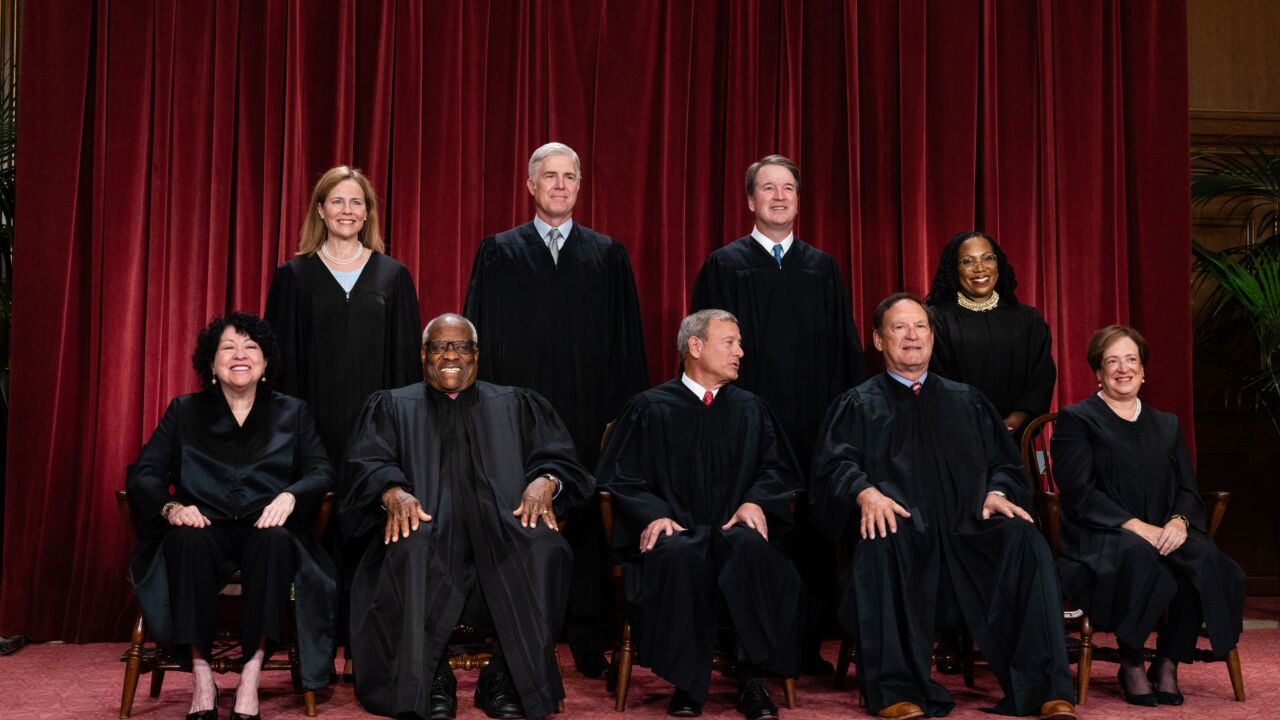-
Early next year the 2nd Circuit Court of Appeals is slated to consider whether certain loans are actually securities.
November 29 -
The case involved a customer who was charged $100,000 in legal fees when he tried to pay off a commercial mortgage early. After the borrower waged a nearly decadelong legal fight, a Florida court ordered the bank to reimburse a portion of the fees.
November 22 -
Legal experts are gaming out the various options for the CFPB after a three-judge panel of the U.S. Court of Appeals for the 5th Circuit ruled on Oct. 19 that the bureau's funding is unconstitutional.
November 1 -
An appeals court ruling last week found that the Consumer Financial Protection Bureau's funding structure violates the Constitution, but another court filing shows how the agency might fight back.
October 26 -
The class-action lawsuit was brought on behalf of mortgage borrowers who were allegedly placed into forbearance during the early days of the pandemic without their consent.
September 16 -
The state Supreme Court heard oral arguments in a lawsuit involving one of the nation's largest debt buyers. At issue is how much detail the industry must disclose about what consumers allegedly owe.
August 31 -
The company has filed a lawsuit against the banking commissioner for threatening to end its partnership with a bank that enables consumer loans to exceed the state’s 36% interest rate cap. OppFi’s argument: Its bank partner is the true lender.
March 10 -
The bureau said two rules related to communications with debtors will go into effect as originally planned on Nov. 30. The agency had previously proposed an extension to consider consumer advocates' concerns about the regulations.
July 30 -
DMB Financial, a debt-settlement firm near Boston that operates in 24 states, agreed to pay $5.4 million in restitution to consumers for allegedly charging upfront fees before providing any service, the CFPB said.
May 17 -
The Consumer Financial Protection Bureau disputes a district court ruling that misconduct claims against the company were already covered by a previous settlement.
April 22 -
The CFPB issued two rulemakings in 2020 that the financial services industry and consumer advocates hoped would finally clarify key issues over how collectors contact debtors and deal with legacy debts. But both sides want the incoming Biden administration to make further changes.
January 5 -
The president-elect has legal backing to fire Director Kathy Kraninger thanks to a recent court ruling, but Republicans are prepared to challenge his ability to choose her successor.
November 23 -
The agency’s consolidation of supervision and enforcement policy into one office could compromise the independence of those deciding when to investigate alleged wrongdoing by banks and others, critics of the move say.
October 22 -
Citigroup’s $900 million payment blunder in a normally low-profile part of the financial market dominated by a handful of banks has experts wondering if regulators will uncover a deeper problem.
August 25 -
The agency sought to provide certainty that most actions from the past eight years remain in effect despite the ruling that the bureau's leadership structure is unconstitutional.
July 7 -
The Supreme Court threw out a key statutory provision concerning the agency’s leadership structure, but the presidential election and possible legislative reforms could bring about more changes to the embattled bureau.
June 29 -
A lawsuit filed Tuesday argues that the bureau's establishment of the panel looking into regulatory changes violated the Federal Advisory Committee Act.
June 16 -
Debt collectors would have to tell consumers upfront that they cannot sue to recover "time-barred" debt under a proposal issued Friday by the Consumer Financial Protection Bureau.
February 21 -
Democratic lawmakers, state attorneys general and others filed briefs with the Supreme Court rebutting claims that the agency’s leadership structure is unconstitutional.
January 24 -
The Supreme Court appointed Paul Clement to represent the agency after the bureau’s current director questioned its constitutionality.
January 15



















